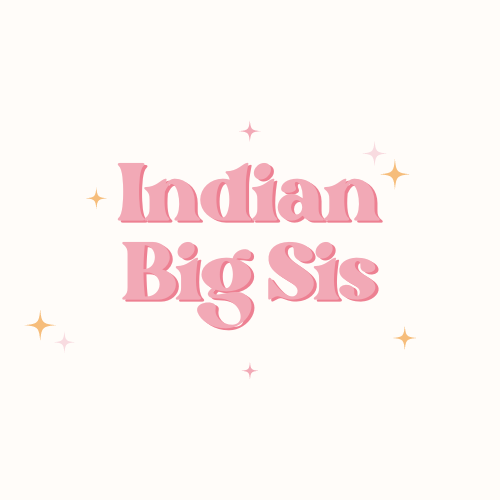Exploring Family Dynamics
The Impact of Indian American Family Dynamics
Discover how the unique dynamics within Indian American families shape identity, emotional well-being, and personal growth.
Understanding Family Influence
The Role of Family in Shaping Identity
The intricate dynamics within Indian American families play a crucial role in shaping an individual’s sense of self, emotional health, and overall personal development. These influences stem from various aspects such as extended family interactions, marriage traditions, and parenting styles.
By examining these elements, we can better understand how family structures and cultural expectations contribute to the unique experiences of Indian Americans, fostering both challenges and opportunities for growth.
The Power of Extended Family
Living in multigenerational households or maintaining close ties with extended family members provides a robust support system. This network offers emotional support and fosters resilience, helping individuals feel a strong sense of belonging and security. Such environments encourage the sharing of cultural values and traditions, reinforcing a collective identity and pride in one’s heritage.
Navigating Family Expectations
Conflicts and Boundary Setting
In Indian American families, the expectations of extended family members can sometimes clash with individual aspirations, leading to conflicts. It is crucial to learn how to set boundaries and assert personal needs to maintain a healthy balance. By doing so, individuals can navigate family dynamics more effectively, ensuring that their personal growth and emotional well-being are not compromised.
Cultural Heritage and Identity
Shaping Identity Through Family
The influence of extended family and cultural heritage plays a significant role in shaping an individual’s sense of identity. For Indian Americans, this connection fosters pride in their background and encourages a deeper understanding of their roots. By embracing their cultural heritage, individuals can develop a strong sense of self and belonging within their community.

Cultural Identity in Marriage
For Indian Americans, cultural identity can have a profound impact on marriage. In arranged marriages or unions within the Indian American community, a shared cultural background can strengthen the bond between partners. This common ground provides a foundation for building a life together, fostering mutual understanding and emotional support.
Intercultural Challenges
In marriages where partners come from different cultural backgrounds, navigating differences in traditions and values can be challenging. However, these challenges also present opportunities for personal growth and mutual understanding. By embracing and respecting each other’s cultural identities, couples can build a stronger, more resilient relationship.
Emotional Well-being
A supportive and understanding partner is essential for emotional well-being. For Indian Americans, balancing their cultural identity with other aspects of their lives can be challenging. A partner who appreciates and supports this balance can contribute significantly to an individual’s emotional health and overall happiness.
Navigating Intercultural Marriages
Intercultural marriages present both challenges and opportunities for personal growth and mutual understanding. Navigating differences in traditions and values can be complex, but it also provides a unique chance for partners to learn from each other and broaden their perspectives. Embracing these differences can strengthen the bond between partners, fostering a deeper connection and appreciation for diverse cultural backgrounds. Effective communication and a willingness to compromise are key to overcoming potential conflicts and building a harmonious relationship.
The Role of a Supportive Partner
Balancing Identity and Emotional Well-being
Fostering Self-Esteem in Children
Parental emphasis on education, career success, and preserving cultural heritage plays a crucial role in fostering self-esteem and confidence in children. By valuing academic achievements and cultural traditions, parents empower their children to embrace their unique identity and take pride in their Indian American background. This approach not only helps children develop a strong sense of self but also prepares them to navigate the complexities of their multicultural environment with confidence and resilience.
High Parental Expectations
The Impact on Children's Stress and Anxiety
In many Indian American families, high parental expectations are a common phenomenon. These expectations often stem from a desire for children to excel academically and professionally. While such aspirations can motivate children to achieve great things, they can also lead to significant stress and anxiety.
Children may feel immense pressure to meet their parents’ standards, which can affect their mental health and overall well-being. The fear of disappointing their parents or failing to meet expectations can result in chronic stress, anxiety, and even depression.
To mitigate these negative effects, it is crucial for parents to provide emotional support and foster open communication. By creating a supportive environment where children feel comfortable discussing their challenges and fears, parents can help alleviate some of the pressure. Encouraging children to pursue their own passions and interests, while still valuing their efforts, can also contribute to a healthier, more balanced upbringing.
Passing Down Cultural Traditions
Passing down cultural traditions is a vital aspect of maintaining a strong sense of identity within Indian American families. These traditions, whether they involve festivals, rituals, or daily practices, help children develop an appreciation for their heritage and instill a sense of pride and belonging.
Balancing Traditions and Aspirations
The Profound Impact on Individuals
The dynamics within Indian American families have a profound impact on individuals, shaping their sense of identity, emotional well-being, and personal growth. Balancing cultural traditions with personal aspirations is essential for fostering resilience and self-confidence.
By embracing their cultural heritage while also pursuing their own goals, individuals can develop a strong sense of self. This balance allows them to navigate the complexities of their dual identity, drawing strength from their roots while forging their own paths.
